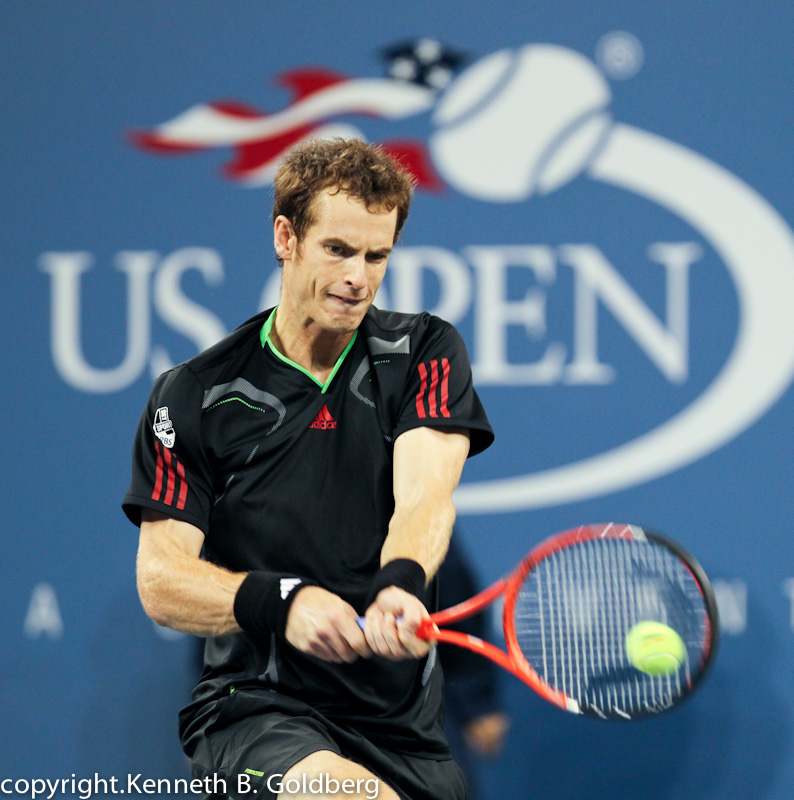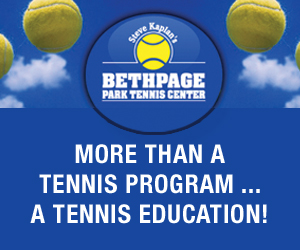Murray Sets Sights on Defending Title in Flushing Meadows

The 2013 Wimbledon Champion Andy Murray and 2012 Olympic Gold Medal winner comes into the upcoming U.S. Open Championships with a purpose … defending the title he won from Novak Djokovic last September. Will history repeat itself in Flushing Meadows? If so, Murray will have a tough act to follow after last year’s near five-hour marathon against Djokovic which Murray won in five sets 7-6(12-10), 7-5, 2-6, 3-6, 6-2, including a tie-breaker of 22 points in the first set which also set a U.S. Open record.
Murray recently sat down for a pre-U.S. Open preview and shared his thoughts on a number of the sport’s hot topics, and the preparation of his title defense at the USTA Billie Jean King National Tennis Center.
It came out on Monday that for the first time ever, there are no American males in the ATP Men’s Singles Top 20. We’ve seen that happening in the last few decades, basically been only Andy Roddick for the last decade since Andre Agassi left. Can you theorize as a man who loves tennis and knows the game so well why the American men’s game is struggling so much at this point in time?
Murray: Well, I think with these sort of things, it goes pretty deep, and I obviously don’t know all the answers to that because I’m not around the day-in, day-out of American tennis and the USTA. What I would say is that, in a way, Americans have been normally spoiled in a way with how great the players they’ve had. They’ve had John McEnroe, Jimmy Connors, Andre Agassi and Pete Sampras, and Andy Roddick even came under some criticism at times in his career when he was around the top of the game. But I don’t know exactly why it is, but I would say that they have been spoiled a little bit with how great some of the players have been. Maybe this is just a blip. You may have to wait a few years to find that out. There is still John Isner, Sam Querrey, and those sorts of guys who cause upsets and get to the top of the game, but they have yet to fully reach their potential.
The year 2013 has marked such a dramatic shift in the distribution of the prize money with early-round losers getting a larger percentage than some of the finalists in the Slams, and first-round losers making 39 percent more at this year’s U.S. Open than they did last year. How important would you say that is this movement is for the growth of the game, and what would you say to people who argue that it’s nonsense for players who haven’t won a match to be getting such an ample pay raise?
Murray: Well, I think for the growth of the game, I don’t know how much of a difference that makes because the
lower level tournaments are still $10,000 and $15,000 tournaments, and that’s been the same for 25, 30 years. To actually grow the game, I think you need to start looking at the prize money at the bottom end rather than just in the first couple of rounds of the majors. From the discussions we’d had with the Slams and in players’ meetings, it was something that the majority of the players wanted the increases to come in the early rounds, and that’s what the tour went with in the end. It’s good that the players have been listened to in that respect. But I just think in terms of actually growing the game, that needs to start at the lowest level of events. But it is fantastic that all of the Slams have stepped up their prize money and the way it’s distributed. That isn’t down to sort of one person’s opinion … it comes from the whole Tour.
Early in your career, you surprised many by stating the U.S. Open was your favorite tournament. Last year, you won the U.S. Open, you won the gold at the Olympics and in June, you won Wimbledon. Which is the most gratifying tournament to win or which is the sweetest award to carry with you the rest of your life?
Murray: Well, that’s a good question. When I was growing up, I went to Flushing Meadows to play the juniors for
the first time. That was when it became my favorite tournament because when I was 15-years-old, you don’t think too much about the history or the events too much; you’re there and you’re just worrying about that one tournament. We got to stay in a really nice hotel there. We got to eat in the players’ restaurant, and I got to see some of my idols. I remember watching Tim Henman and Roger Federer playing against each other just before they played the semis of the real U.S. Open. There I got to see Andre Agassi having his dinner and things like that, which at Wimbledon, you don’t get that type of access. You’re sort of in a different area. That was where my love for the U.S. Open came from, and I really liked the atmosphere of the night matches.
When I started playing more on the tour and started to play more at Wimbledon and I lost a few tough matches and I got a little bit older, I started to understand how much that tournament meant, not just to myself but also to
the country and the whole history of it with no British man having won for so long. That started to mean a little bit more.
For me, the U.S. Open in 2012 was just a massive relief to finally win. The Olympic Gold Medal, in terms of an actual experience, I truly enjoyed the Olympics the most out of the three based on pure enjoyment. I loved the whole two weeks. I got to watch loads of other sports. An Olympic Games on home soil, I’ll never get that experience again. That was really cool.
But the sweetest would be Wimbledon because of the amount of pressure I was under and the way the final ended the year before. That would be the sweetest victory I would say.







